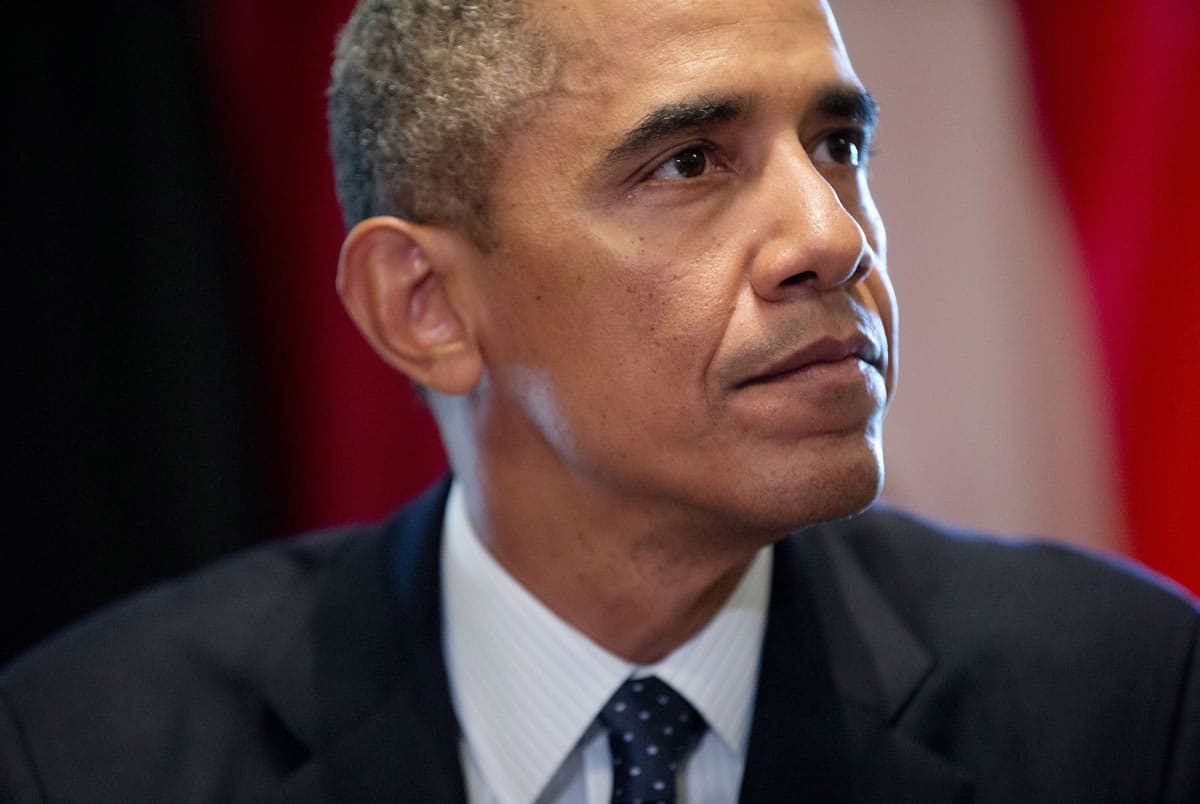WASHINGTON — Edging toward a punitive strike against Syria, President Barack Obama said Friday he is weighing “limited and narrow” action as the administration bluntly accused Bashar Assad’s government of launching a chemical weapons attack that killed at least 1,429 people — far more than previous estimates — including more than 400 children.
No “boots on the ground,” Obama said, seeking to reassure Americans weary after a decade of war in Iraq and Afghanistan.
With France as his only major public ally, Obama told reporters he has a strong preference for multilateral action. He added, “Frankly, part of the challenge we end up with here is, a lot of people think something should be done but nobody wants to do it.”
Halfway around the world, U.S. warships were in place in the Mediterranean Sea. They carry cruise missiles, long a first-line weapon of choice for presidents because they can find a target hundreds of miles distant without need of air cover or troops on the ground.
In what appeared increasingly like the pre-attack endgame, U.N. personnel dispatched to Syria carried out a fourth and final day of inspection Friday as they sought to determine precisely what happened in last week’s attack, then left, carrying samples for testing in laboratories around the world.
The Syrian government said administration claims were “flagrant lies” akin to faulty Bush administration assertions before the Iraq invasion that Saddam Hussein had weapons of mass destruction.
Residents of Damascus stocked up on food and other necessities in anticipation of strikes, with no evident sign of panic. Talal Dowayih, 42, said: “I am not afraid from the Western threats to Syria; they created the chemical issue as a pretext for intervention, and they are trying to hit Syria for the sake of Israel.”
Obama said he has not yet made a final decision on a response to the attack.
But the administration did nothing to discourage the predictions that he would act — and soon. It was an impression heightened both by strongly worded remarks from Secretary of State John Kerry and the release of an unclassified intelligence assessment (http://apne.ws/14etnyn) that cited “high confidence” that the Syrian government carried out the attack.
In addition to the dead, the assessment reported about 3,600 patients “displaying symptoms consistent with nerve agent exposure” were seen at Damascus-area hospitals after the attack. To that, Kerry added, “A senior regime official who knew about the attack confirmed that chemical weapons were used by the regime, reviewed the impact and actually was afraid they would be discovered.” He emphasized: “We know this.”
The assessment did not explain its casualty count, far higher than an estimate from Doctors Without Borders. Not surprisingly — given the nature of the disclosure — it also did not say expressly how the United States knew what one Syrian official had allegedly said to another.
Mindful of public opinion, Kerry urged Americans to read the four-page assessment for themselves. He referred to Iraq — when Bush administration assurances that weapons of mass destruction were present proved false, and a U.S. invasion led to a long, deadly war. Kerry said this time will be different.
Citing an imperative to act, the nation’s top diplomat said “it is directly related to our credibility and whether countries still believe the United States when it says something. They are watching to see if Syria can get away with it because then maybe they, too, can put the world at greater risk.”
While Obama was having trouble enlisting foreign support, French President Francois Hollande was an exception. The two men spoke by phone, then Hollande issued a statement saying they had “agreed that the international community cannot tolerate the use of chemical weapons, that it must hold the Syrian regime responsible and send a strong message to denounce the use of (such) arms.”



